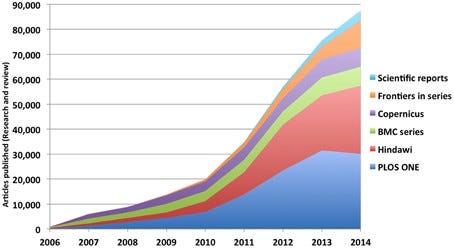When does remote working causes stress?
Answering the question “Why are remote workers stressed” autonomy certainly plays a role. This is an aspect of work that managers can influence, compared to emotional stability, which is a personal characteristic and can change depending on the context.

I had my first remote working experience in 2012. It wasn't fully remote, but a step towards it. As a junior member, I had the lead role of connecting the physical team with the virtual project manager. Since then, I have never looked back and don’t consider virtuality a disadvantage. That being said, I also had one very negative experience. But, hey, you need to learn: Fall down, get up, and keep going.
When you search for remote work and performance, productivity or stress, you get many hits with tips about what to do and what not to do. As a researcher, I want to have more: I like to read well-designed experiments, testing hypotheses about why remote workers behave or feel a certain way.
It’s not that I don’t trust individual accounts, but I know we are all humans. By looking at evidence from several sources, I have more data to — hopefully — make better decisions. Of course, every study has its own limitation.
Why are remote workers stressed?
Now, this post started with me searching for that one article I read, I think, in 2016. That’s when I had the bad virtual team experience. When I read social science papers (which I do for a living), sometimes, you want to say “Duh, of course” or “Oh, that explains”. Now, when I read that paper, I thought, “Oh, that explains!”. Unfortunately, I don’t have the right keywords in my head, and the paper is lost in the vast number of academic papers scholars publish.

While I didn’t found the paper, I found several other ones that talked about the topic.
Sara Jansen Perry, Cristina Rubino & Emily M. Hunter talk about the stress of remote workers and under which circumstances remote workers will be experiencing exhaustion and other negative emotional states. Remote workers’ level of exhaustion increases the lower their level of emotional stability and autonomy is. They also looked at the interaction between autonomy and emotional stability. Individuals who have low levels of emotional stability and do not experience autonomy in their work are the most likely to feel exhausted.

Christoph Weinert, Christian Maier, and Sven Laumer looked at what aspects of work can create stress and lead to exhaustion. They investigated the importance of work overload, work-home conflict, and role ambiguity on exhaustion. Having too much work, or feeling overloaded with work, is the biggest predictor of exhaustion. Now, the question is, “What causes work overload?” The authors also looked at that. Individuals who feel isolated or do not get enough information feel overloaded with work. Autonomy, on the other hand, decreases the perception of work overload.
Answering the question “Why are remote workers stressed” autonomy certainly plays a role. This is an aspect of work that managers can influence, compared to emotional stability, which is a personal characteristic and can change depending on the context. Hence, let’s focus on the aspects of a job that managers can influence or employees can influence through discussion with managers and employees: autonomy, information under-supply, and feeling of isolation.
Autonomy
How much autonomy someone has in their job depends on their role. Within the research work on remote work, perceived autonomy automatically increases when someone is allowed to work remotely: By giving this freedom, the manager gives the employee autonomy when and where to work. This is not completely true, as ‘when to work’ is also influenced by time zones and client meetings.
In the context of the cited research, autonomy is a job resource. Autonomy exists when remote workers are given the freedom to find solutions to their challenges, specifically their challenges due to remote work. Hence it goes beyond what should be done and also includes how it is done. Think about the tools users have (e.g., what computer equipment has to be used, what software is employed).
Tip: Discuss what aspects of your job need less oversight (i.e., control) from others.
Information under-supply
Information under-supply means that remote workers have limited or no access to spontaneous discussion, ad-hoc learning from colleagues, and ‘office gossip’. However, this is mostly true for remote workers whose team members work in an office. When everyone is spread worldwide, the team has a system to create the information flow in physical offices.
Tip: Increase purposeful social interaction with co-workers. Reach out to them!
Feeling of Isolation
Feeling isolated happens when a remote worker feels cut off from other interactions and does not get (or perceives that s/he doesn’t get) the social interaction and emotional support that s/he needs. When remote workers have limited interaction with other colleagues or only work-related interaction, it is well possible that they feel all alone. Like Digital Nomad Girls Inner Circle or Worfrom.co, online communities can help with that feeling.
Tip: Join a community, reach out to co-workers, or work part-time remotely (extend your understanding of part-time beyond the week. What about working 6 months in the office and 6 months somewhere else?).